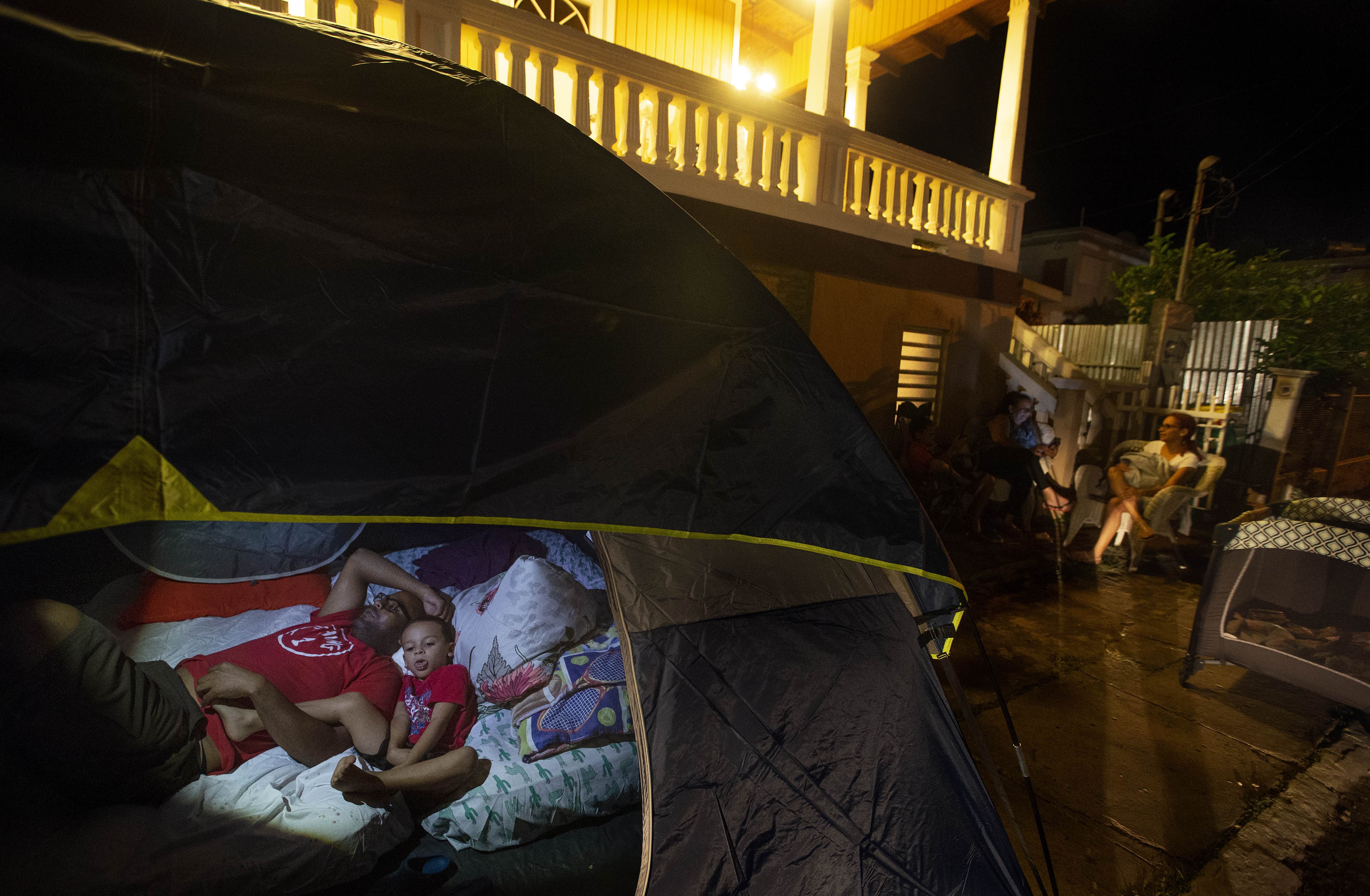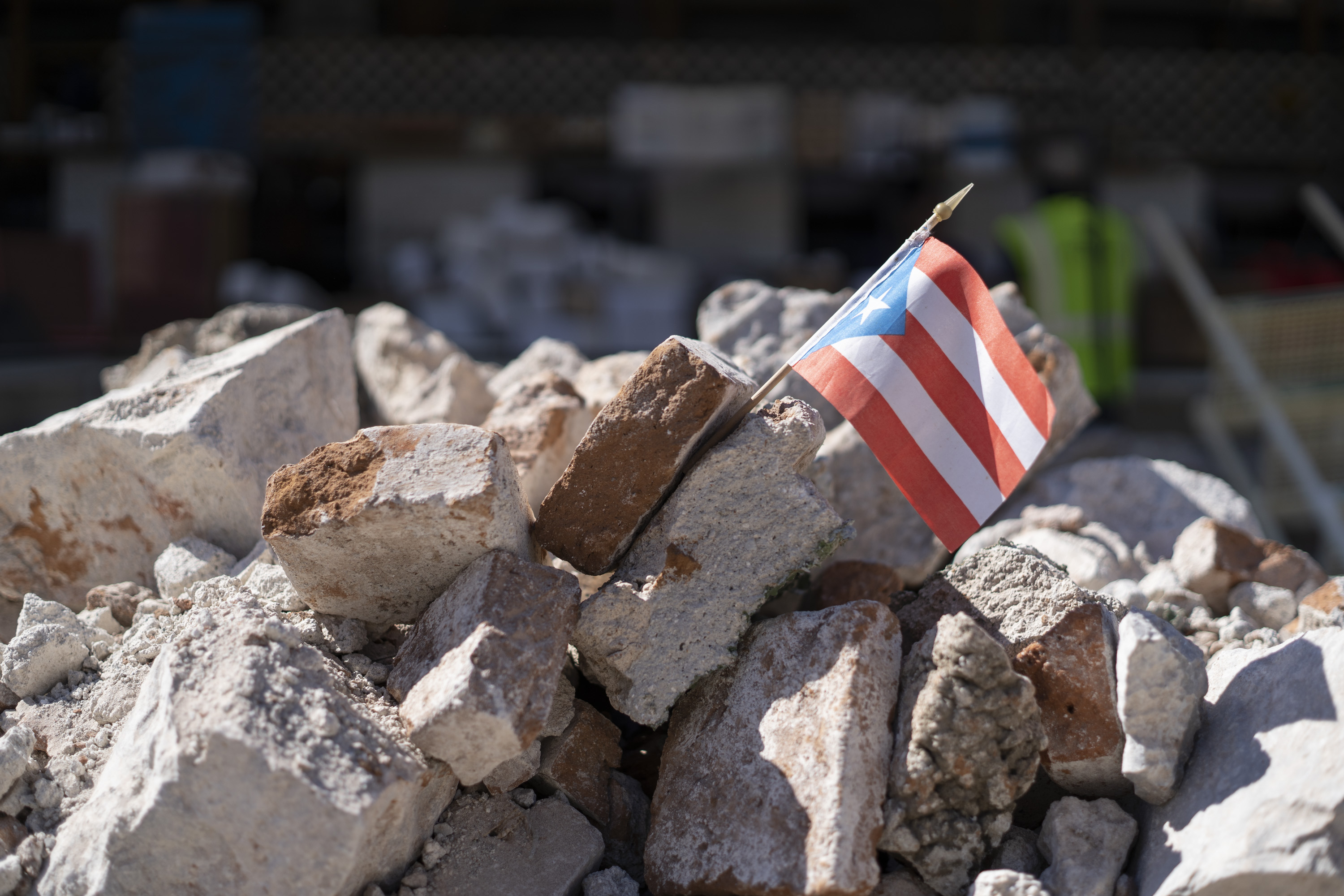Stephanie Padilla was sleeping in her apartment in Ponce, on the southern coast of Puerto Rico, when she woke up to the 6.4-magnitude earthquake that struck on January 7. A day before, after weeks of tremors reported in the area, Padilla had left her family home in Carolina to drive to Ponce to start the semester at the University of Puerto Rico. “I said to mami jokingly, ‘I’m going to the south to die’,” she tells Remezcla.
“I still don’t have the words to explain how horrible it was.”
Less than 24 hours later, Padilla found herself on the street with her neighbors, experiencing the first panic attack of her life. “I still don’t have the words to explain how horrible it was,” she says.
The 6.4-magnitude earthquake left thousands homeless, one dead and hundreds of schools, houses and landmarks in ruins. The island was left in the dark after the Costa Sur power plant, located in Guayanilla, suffered severe structural destruction. Officials now say it could take up to a year to restore the damage. Thousands more are still sleeping outside their homes fearing another earthquake or aftershock can end their lives.
This scenario is one Puerto Ricans in and out of the archipelago know too well. The sound of electric plants now replace the melodic singing of coquís at night and the fumes of the diesel bring back memories of post-Hurricane María Puerto Rico. There’s also a growing uncertainty. Having lived through these conditions before, Puerto Ricans have an idea about how it will end.

“In one way, it’s worse knowing what comes next because you know you can’t trust the government to help us,” Padilla says. “You think you’re over what happened before, but that’s not true.”
“You think you’re over what happened before, but that’s not true.”
Natural disasters have been a staple of life in Puerto Rico forever, but the imminent threat of climate change, an economic and political crisis as well as austerity measures threaten to worsen living conditions for an already impoverished Puerto Rico in the coming decades. The German Climate Watch found that the archipelago was the most affected place on earth due to climate change from 1999 to 2018, forcing thousands to seek refuge in the contiguous U.S..
The impact is most visible on the mental health of Puerto Ricans, both in and out of the island. Reports say 1 in every 14 schoolchildren experienced PTSD after Hurricane María, while the archipelago’s suicide rate spiked by 26 percent in 2017. The toll is already visible on Puerto Ricans following the earthquake as well, as one woman died from a heart attack while being rescued from her collapsed home in Guayanilla.
“We’ve had one disaster after the other,” Emma Gissell says. “If we can’t even begin to recover, we are even more vulnerable.”
Gissell recalls not being able to sleep in the hours following last week’s earthquake, saying she was nauseous, shaking and could not breathe properly. She says each aftershock feels worse and makes her feel more unsafe. “I feel the same terror as the first time,” Gissell says. “Uncertainty is the only word to describe it.”
For Puerto Ricans in the diaspora, the situation also sparks a wave of disturbing memories from September 2017. Kisai Ponce, a New York-based publicist, moved to the U.S. after she was left unemployed in the months following Hurricane María. She says she feels helpless looking at the situation from the outside. “Not being able to help, the lack of information, it just worsens my already fragile mental health since the hurricane,” she says.

Like Ponce, Ishaira Nieto is far from her family, who lives in Guánica, the epicenter of the recent wave of earthquakes. She says she was already on alert last week, when she got a text from her cousin who went to the town to accompany her grandparents. They were unable to sleep for days due to the tremors and aftershocks. “She told us things were falling from the walls and bits were collapsing from the columns and ceiling in the balcony,” Nieto recalls.
“I don’t know if my mental health can withstand it.”
In September 2017, like thousands in the diaspora, Nieto experienced a different kind of hurricane, one she says was more emotional than physical. “We never want to compare what we went through with our families in Puerto Rico,” she says. “But it did impact us, and I think both disasters have united the diaspora and the island with an open wound and a collective mourning.”
After the earthquake, Padilla hasn’t been able to go back to her apartment in Ponce. She skipped class during the first day, and when her school emailed to check on her she told them, “I need help, we all do.” While she has never suffered from anxiety before, she says this experience is enough for her to seek professional help in the future. “I’m worried something bigger happens,” she says. “I don’t know if my mental health can withstand it.”
If you are thinking about suicide, please call the National Suicide Prevention Lifeline at 1-800-273-TALK (8255) or the Suicide Crisis Line at 1-800-784-2433. If you are experiencing anxiety and are in need of crisis support, please call the Crisis Call Center’s 24-hour hotline at 1-775-784-8090. Si estás pasando una crisis emocional o de ansiedad, favor llamar a la Línea PAS al 1-787- 763-7575 o al 1-800-981-0023.







